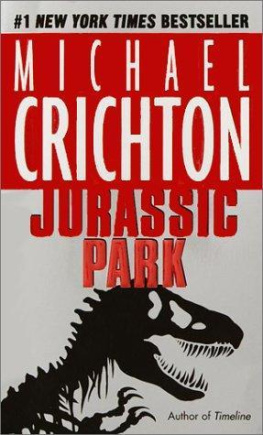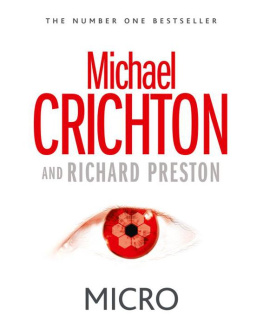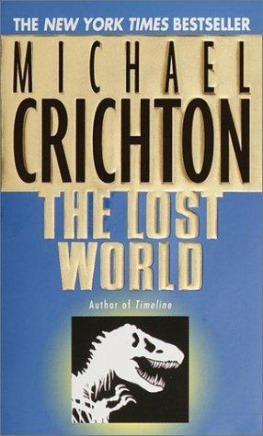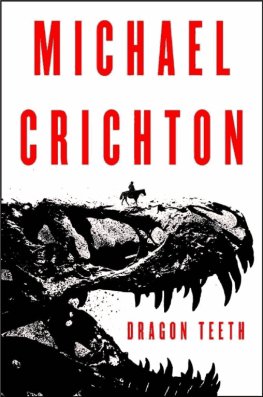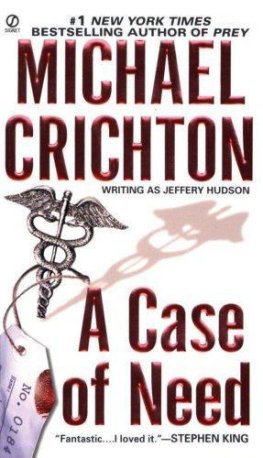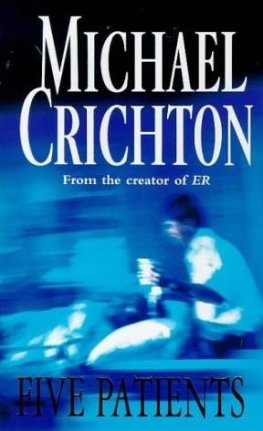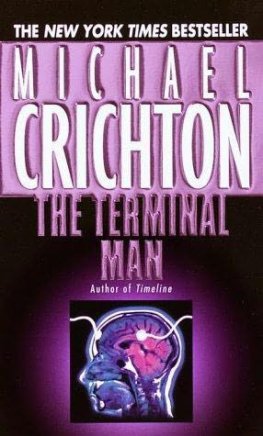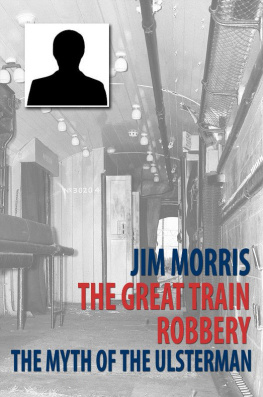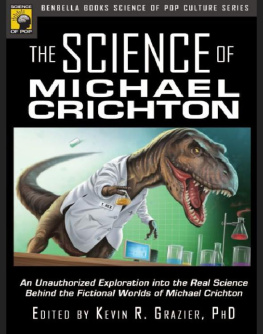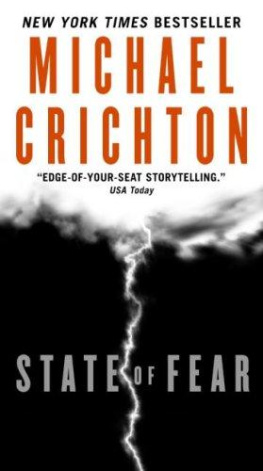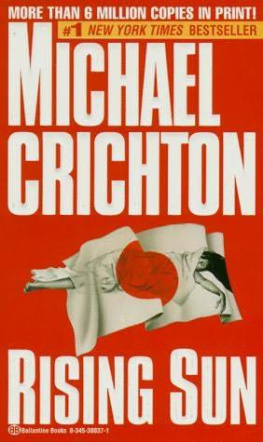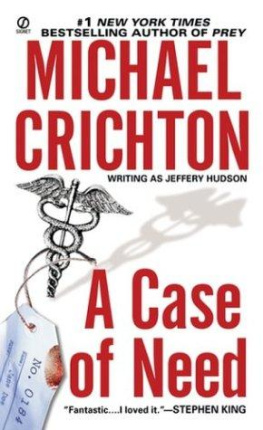Michael Crichton - The Great Train Robbery
Here you can read online Michael Crichton - The Great Train Robbery full text of the book (entire story) in english for free. Download pdf and epub, get meaning, cover and reviews about this ebook. genre: Children. Description of the work, (preface) as well as reviews are available. Best literature library LitArk.com created for fans of good reading and offers a wide selection of genres:
Romance novel
Science fiction
Adventure
Detective
Science
History
Home and family
Prose
Art
Politics
Computer
Non-fiction
Religion
Business
Children
Humor
Choose a favorite category and find really read worthwhile books. Enjoy immersion in the world of imagination, feel the emotions of the characters or learn something new for yourself, make an fascinating discovery.

- Book:The Great Train Robbery
- Author:
- Genre:
- Rating:3 / 5
- Favourites:Add to favourites
- Your mark:
- 60
- 1
- 2
- 3
- 4
- 5
The Great Train Robbery: summary, description and annotation
We offer to read an annotation, description, summary or preface (depends on what the author of the book "The Great Train Robbery" wrote himself). If you haven't found the necessary information about the book — write in the comments, we will try to find it.
The Great Train Robbery — read online for free the complete book (whole text) full work
Below is the text of the book, divided by pages. System saving the place of the last page read, allows you to conveniently read the book "The Great Train Robbery" online for free, without having to search again every time where you left off. Put a bookmark, and you can go to the page where you finished reading at any time.
Font size:
Interval:
Bookmark:
Michael Crichton
The Great Train Robbery
To Barbara Rose
Satan is glad - when I am bad,
And hopes that I - with him shall lie
In fire and chains - and dreadful pains
Victorian child's poem, 1856
"I wanted the money."
Edward Pierce, 1856
INTRODUCTION
It is difficult, after the passage of more than a century, to understand the extent to which the train robbery of 1855 shocked the sensibilities of Victorian England. At first glance, the crime hardly seems noteworthy. The sum of money stolen-- ?12,000 in gold bullion-- was large, but not unprecedented; there had been a dozen more lucrative robberies in the same period. And the meticulous organization and plan of the crime, involving many people and extending over a year, was similarly not unusual. All major crimes at the mid-century called for a high degree of preparation and coordination.
Yet the Victorians always referred to this crime in capital letters, as The Great Train Robbery. Contemporary observers labeled it The Crime of the Century and The Most Sensational Exploit of the Modern Era. The adjectives applied to it were all strong: it was "unspeakable," "appalling," and "heinous." Even in an age given to moral overstatement, these terms suggest some profound impact upon everyday consciousness.
To understand why the Victorians were so shocked by the theft, one must understand something about the meaning of the railroads. Victorian England was the first urbanized, industrialized society on earth, and it evolved with stunning rapidity. At the time of Napoleon's defeat at Waterloo, Georgian England was a predominantly rural nation of thirteen million people. By the middle of the nineteenth century, the population had nearly doubled to twenty-four million, and half the people lived in urban centers. Victorian England was a nation of cities; the conversion from agrarian life seemed to have occurred almost overnight; indeed, the process was so swift that no one really understood it.
Victorian novelists, with the exception of Dickens and Gissing, did not write about the cities; Victorian painters for the most part did not portray urban subjects. There were conceptual problems as well-- during much of the century, industrial production was viewed as a kind of particularly valuable harvest, and not as something new and unprecedented. Even the language fell behind. For most of the 1800s, "slum" meant a room of low repute, and "urbanize" meant to become urbane and genteel. There were no accepted terms to describe the growth of cities, or the decay of portions of them.
This is not to say that Victorians were unaware of the changes taking place in their society, or that these changes were not widely-- and often fiercely-- debated. But the processes were still too new to be readily understood. The Victorians were pioneers of the urban, industrial life that has since become commonplace throughout the Western world. And if we find their attitudes quaint, we must nonetheless recognize our debt to them.
The new Victorian cities that grew so fast glittered with more wealth than any society had ever known-- and they stank of poverty as abject as any society had ever suffered. The inequities and glaring contrasts within urban centers provoked many calls for reform. Yet there was also widespread public complacency, for the fundamental assumption of Victorians was that progress-- progress in the sense of better conditions for all mankind-- was inevitable. We may find that complacency particularly risible today, but in the 1850s it was a reasonable attitude to adopt.
During the first half of the nineteenth century, the price of bread, meat, coffee, and tea had fallen; the price of coal was almost halved; the cost of cloth was reduced 80 percent; and per-capita consumption of everything had increased. Criminal law had been reformed; personal liberties were better protected; Parliament was, at least to a degree, more representative; and one man in seven had the right to vote. Per-capita taxation had been reduced by half. The first blessings of technology were evident: gaslights glowed throughout the cities; steamships made the crossing to America in ten days instead of eight weeks; the new telegraph and postal service provided astonishing speed in communications.
Living conditions for all classes of Englishmen had improved. The reduced cost of food meant that everyone ate better. Factory working hours had been reduced from 74 to 60 hours a week for adults, and from 72 to 40 for children; the custom of working half-days on Saturday was increasingly prevalent. Average life span had increased five years.
There was, in short, plenty of reason to believe that society was "on the march," that things were getting better, and that they would continue to get better into the indefinite future. The very idea of the future seemed more solid to the Victorians than we can comprehend. It was possible to lease a box in the Albert Hall for 999 years, and many citizens did so.
But of all the proofs of progress, the most visible and striking were the railroads. In less than a quarter of a century, they had altered every aspect of English life and commerce. It is only a slight simplification to say that prior to 1830 there were no railroads in England. All transportation between cities was by horsedrawn coach, and such journeys were slow, unpleasant, dangerous, and expensive. Cities were consequently isolated from one another.
In September, 1830, the Liverpool amp; Manchester Railway opened and began the revolution. In the first year of operation, the number of railway passengers carried between these two cities was twice the number that had traveled the previous year by coach. By 1838, more than 600,000 people were carried annually on the line-- a figure greater than the total population of either Liverpool or Manchester at that time.
The social impact was extraordinary. So was the howl of opposition. The new railroads were all privately financed, profit-oriented ventures, and they drew plenty of criticism.
There was opposition on aesthetic grounds; Ruskin's condemnation of the railway bridges over the Thames echoed a view widely held by his less refined contemporaries; the "aggregate disfigurement" of town and countryside was uniformly deplored. Landowners everywhere fought the railroads as deleterious to property values. And the tranquility of local towns was disrupted by the onslaught of thousands of rough, itinerant, camp-living "navvies," for in an era before dynamite and earthmovers, bridges were built, tracks were laid, and tunnels were cut by sheer human effort alone. It was also well recognized that in times of unemployment the navvies easily shifted to the ranks of urban criminals of the crudest sort.
Despite these reservations, the growth of the English railroads was swift and pervasive. By 1850, five thousand miles of track crisscrossed the nation, providing cheap and increasingly swift transportation for every citizen. Inevitably the railroads came to symbolize progress. According to the Economist, "In locomotion by land our progress has been most stupendous-- surpassing all previous steps since the creation of the human race In the days of Adam the average speed of travel, if Adam ever did such things, was four miles an hour; in the year 1828, or 4,000 years afterwards, it was still only ten miles, and sensible and scientific men were ready to affirm and eager to prove that this rate could never be materially exceeded; --in 1850 it is habitually forty miles an hour, and seventy for those who like it."
Here was undeniable progress, and to the Victorian mind such progress implied moral as well as material advancement. According to Charles Kingsley, "The moral state of a city depends on the physical state of that city; on the food, water, air, and lodging of its inhabitants." Progress in physical conditions led inevitably to the eradication of social evils and criminal behavior-- which would be swept away much as the slums that housed these evils and criminals were, from time to time, swept away. It seemed a simple matter of eliminating the cause and, in due course, the effect.
Font size:
Interval:
Bookmark:
Similar books «The Great Train Robbery»
Look at similar books to The Great Train Robbery. We have selected literature similar in name and meaning in the hope of providing readers with more options to find new, interesting, not yet read works.
Discussion, reviews of the book The Great Train Robbery and just readers' own opinions. Leave your comments, write what you think about the work, its meaning or the main characters. Specify what exactly you liked and what you didn't like, and why you think so.

